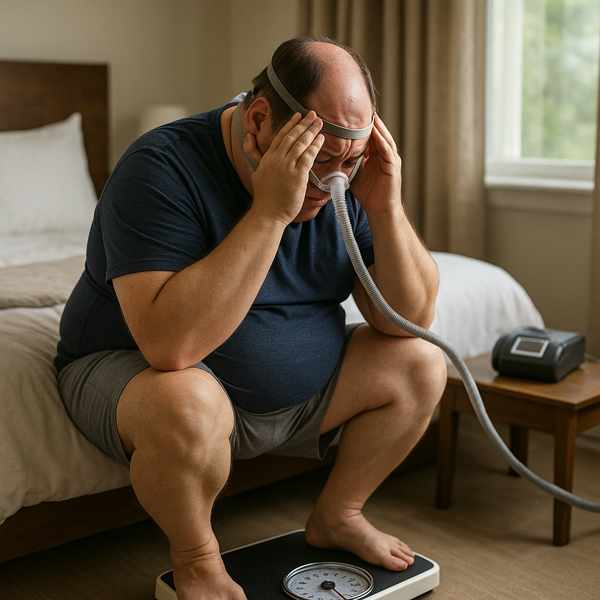Can Weight Loss Cure Sleep Apnea?
Can Weight Loss Cure Sleep Apnea?
Blog Article

Many people with sleep apnea experience difficulty sleeping, loud snoring, and interrupted breathing patterns.
While not always a complete cure, weight loss often lowers the impact of sleep apnea significantly.
Understanding Sleep Apnea
The most common form is obstructive sleep apnea (OSA), caused by relaxed throat muscles.
Common symptoms include:
- Often reported by sleep partners
- Choking or gasping during sleep
- Difficulty staying alert during the day
- Signs of disrupted oxygen flow
The Link Between Weight and Sleep Apnea
Fat deposits in the throat may narrow the airway, making it more likely to collapse.
Key risk factors include:
- More weight increases OSA risk
- Fat around the neck and jawline
- Poor muscle tone in the throat
Does Losing Weight Help OSA?
Especially in individuals with mild to moderate OSA, lifestyle changes can be very effective.
Possible benefits of weight loss:
- Improved nighttime breathing
- Better oxygen flow
- Less need for CPAP machines or surgery
- Feel more rested and alert
However, weight loss may not cure sleep apnea in all cases — especially if anatomical issues or severe OSA are present.
How Much Weight Loss Is Needed?
Studies show that losing just 10% of body weight can reduce OSA severity by up to 50%.
Tips:
- Focus on progress, not perfection
- Combine diet and exercise
- Track your sleep changes
Healthy Ways to Lose Weight for Sleep Improvement
Effective strategies:
- Eat a balanced, whole-food diet
- Exercise regularly (cardio + strength)
- Sleep on your side
- Avoid alcohol and sedatives
Working with a nutritionist or sleep specialist can provide more personalized support.
Other Treatments Besides Weight Loss
While weight loss is helpful, it may not fully resolve sleep apnea for everyone.
- CPAP therapy (Continuous Positive Airway Pressure)
- Oral appliances
- To remove excess tissue or reposition structures
Is Weight Loss the Answer?
So, can weight loss visit this website cure sleep apnea? In many cases, it can help manage the condition.
Still, sleep apnea is a medical condition that may require combined treatments. Report this page